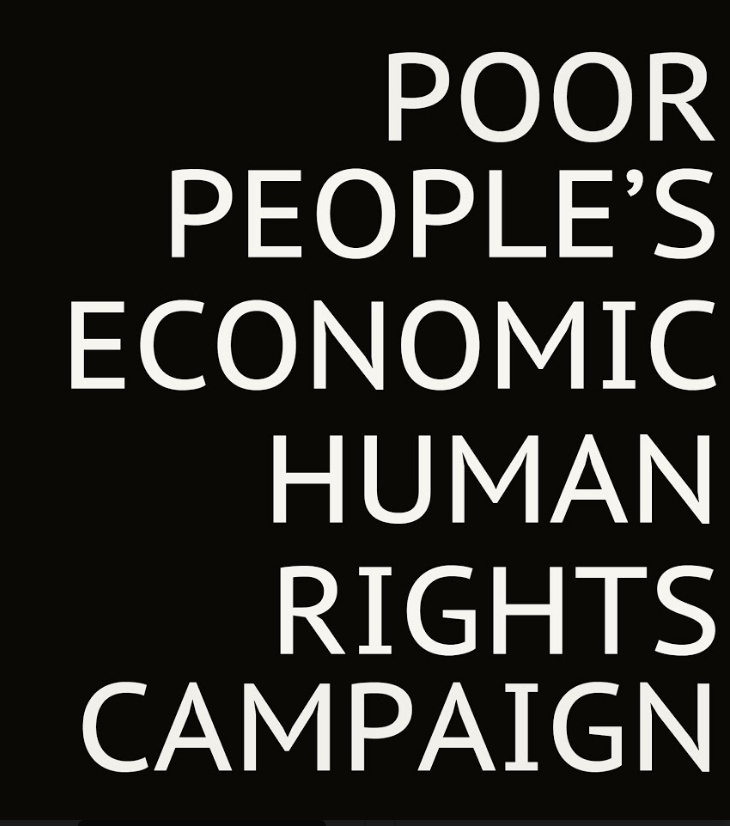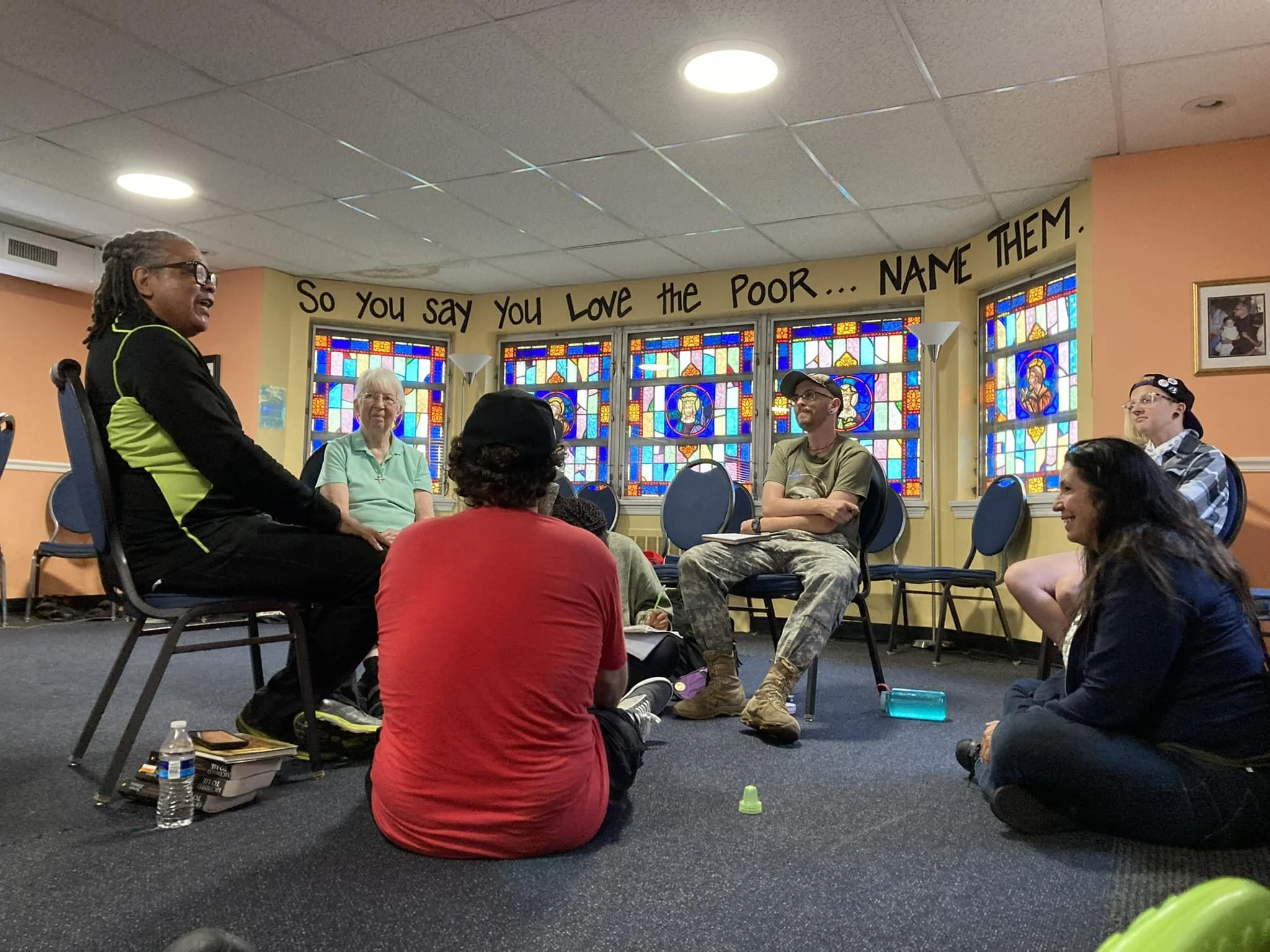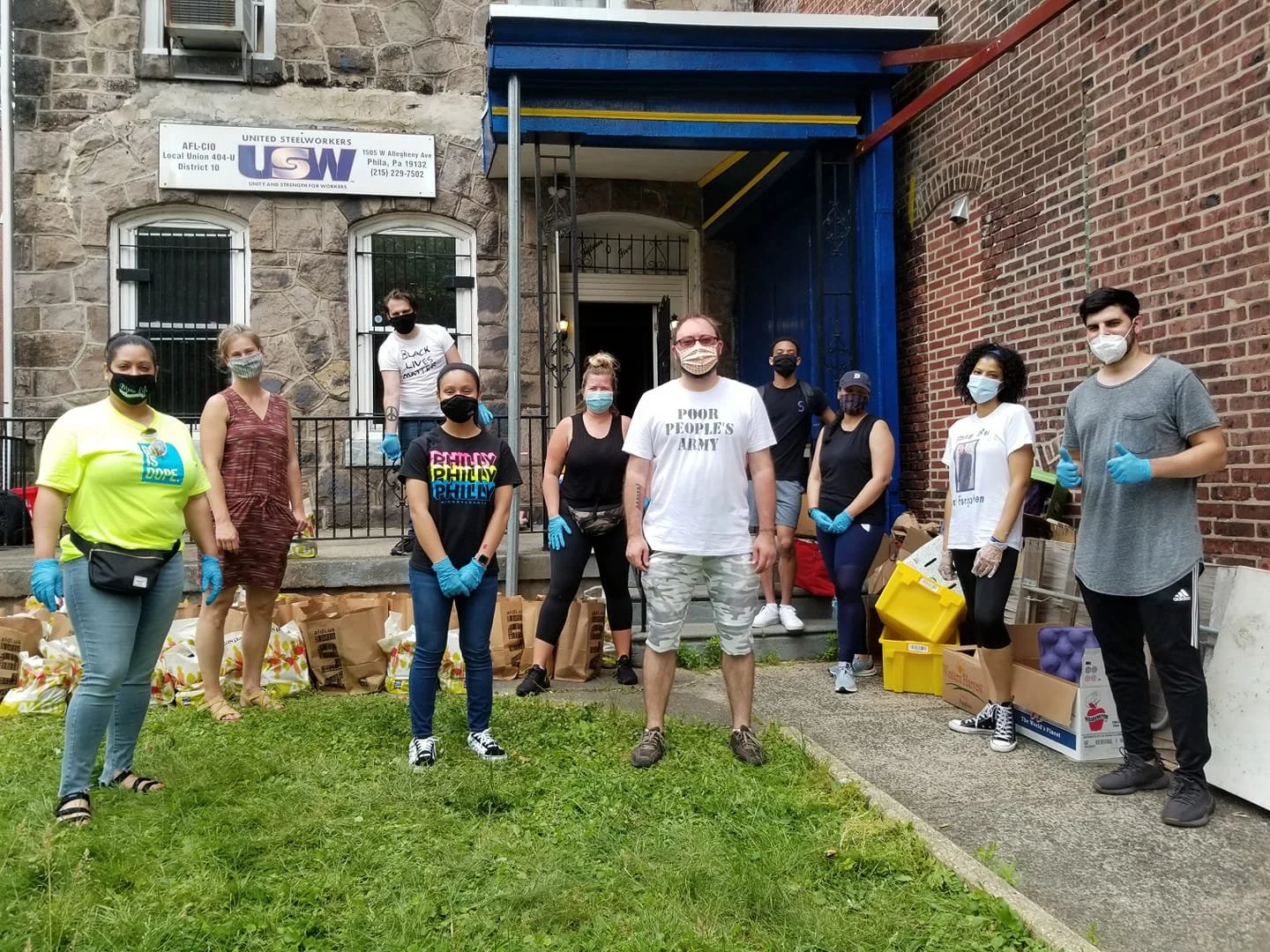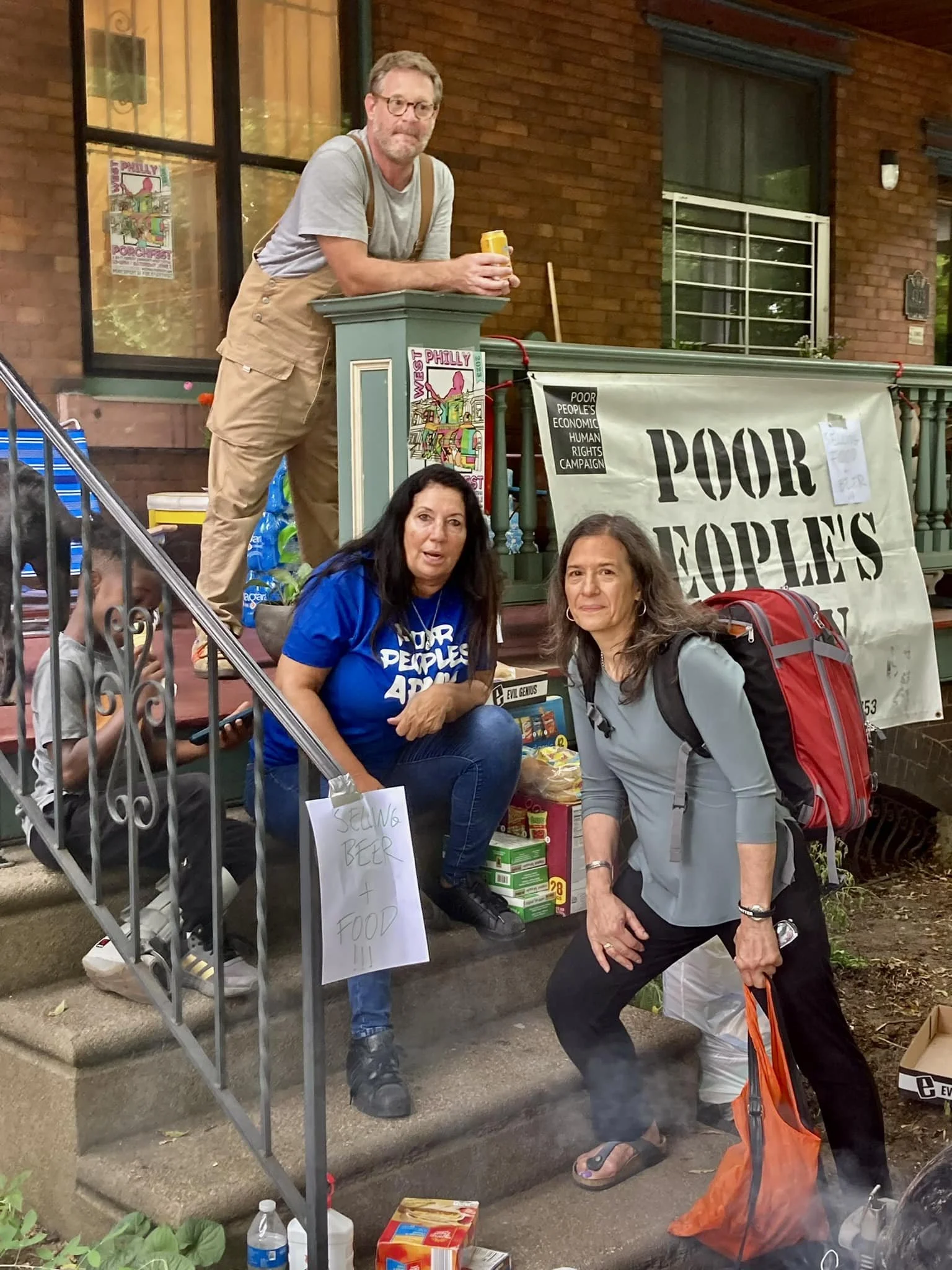WHAT WE DO
POLITICAL EDUCATION
A movement to end poverty that is led by the poor can only succeed if the member groups, leaders and participants have the skills, knowledge, and capacity to organize and lead effective campaigns for systemic change. A key part of PPEHRC is its educational arm that is concerned with the unity and development of the leaders of the Campaign.
As a result, PPEHRC holds educationals twice a month. These classes focus on the leadership development and participation of the poor themselves and their allies. The goal is to teach important analytical and critical thinking skills, projects of survival, and ways to organize to take back our communities.
Discussion topics include: Housing Takeovers; How to Take Land; How to Grow Your Own Food; Door-to-Door Organizing; Classes on the Politics of Poverty, Hunger, and Homelessness; Gentrification; Teaching the Importance of Developing New Alignments that can Lead to Political Independence; Communications & Technology – How to Break Down the Digital Divide; Breaking from the Non-Profit Industrial Complex (charities controlled by corporations)

PROJECTS OF SURVIVAL
Housing Takeovers: As a Poor People’s Campaign, we believe everyone has the right to housing. In response, we reclaim vacant government-owned homes to house homeless families and individuals that are often turned away from city shelters or are victims of fire, domestic violence, and/or foreclosure.
Human Rights Houses: Community members of the Kensington and North Philadelphia neighborhoods are currently in dire need of housing. Development means rent increases that push out long-term residents. We are working for the poor people of Philadelphia to have stability and self-determination. As a result, PPEHRC is working to build a Human Rights House that would both act as a crisis center for families in need and be the site of ongoing educational and organizing work. In addition, we are currently planning to acquire and renovate several rowhomes in order to provide an affordable option for homeless individuals and families. Community volunteer labor and sweat equity will accomplish a great deal of the construction work, using green building principles and practices. PPEHRC will establish a Community Land Trust (CLT) to ensure the perpetual affordability of the houses. This project will also incorporate job training programs and support services like mental health and substance abuse treatment for residents. We will offer this support alongside and interwoven with our work of supporting the leadership of poor and homeless people to organize for human rights and economic justice.
Food Distribution: Philadelphia is located in PA’s First Congressional District which has the highest rate of food insecurity in the nation, with over 36% of its households reporting that they lack the money to buy enough food. As a response, we are committed to addressing the issues of hunger, health, and nutrition within the Kensington Neighborhood by growing our own food, identifying surplus food in our community, and distributing it to those in need. In addition to collecting and distributing food through a food pantry, we partnered with the Norris Square Neighborhood Project to create an urban farm for PPEHRC. The sole purpose of our farm is to end hunger in our community by growing food and distributing it for free to those in need.
Movement Building
Protests/Demonstrations: PPEHRC has taken up the mantle of the original Poor People’s Campaign with Dr. Martin Luther King and we continue to follow his, along with Gandhi’s teachings as a movement. We are strong believers in the use of non-violent civil disobedience which we use during various protests and demonstrations. Before a protest or a demonstration is put into action, we first try to utilize the city services. Unfortunately, these city services generally do not exist anymore due to government neglect and budget cuts. When these services are unavailable, we utilize the tool of protesting and demonstrating to bring visibility to dire social issues. These activities also provide us a teaching opportunity to talk about the politics of hunger, homelessness, and poverty with our members.
Bus Tours & Marches: 40 years after Martin Luther King Jr. began his historic Poor Peoples March to end poverty, the number of people in this country who are unable to meet one or more of their basic needs have continued to increase dramatically. The response from our government has been ongoing and consistent ignoring of the issues and needs of the poor. Therefore, PPEHRC has held various Bus Tours and Marches across the country to shine a spotlight on our country’s failure to address the issues of poverty and to call for action.
Historically, we have held many bus tours and marches across the United States. We see this as an opportunity to teach while we fight. It is our boot camp/immersion experience where members of the movement learn how to deal with high-stress logistics such as community building and relationship building while on the road. It is also a great way to recruit future leaders and to build partnerships across the country.
Truth Commissions: For years people across the world have had their economic human rights violated. People's basic human needs - including housing, food, and healthcare - are not being met. Children are removed from their homes, people are forced to live out of cars or on the streets, and families lack the food and healthcare they desperately need. On July 15th and 16th of 2006 the first ever Truth Commission was held in the United States by PPEHRC. It was modeled after similar commissions held in Africa and Latin America. The Truth Commission was created to unite people across the world of different race, class, gender, and education to form a foundation for a movement to abolish poverty. The event focused on organizing and educating the community about ongoing human right violations. It was a time where members of the community came together and learned from one another and their past experiences. The event was an avenue for panelists from the community to share their stories of how their economic human rights have been violated. These stories were heard and discussed by a diverse group of the community’s professionals. This Truth Commission was held in Cleveland, Ohio with an audience of over 600 national and international truth commissioners.







